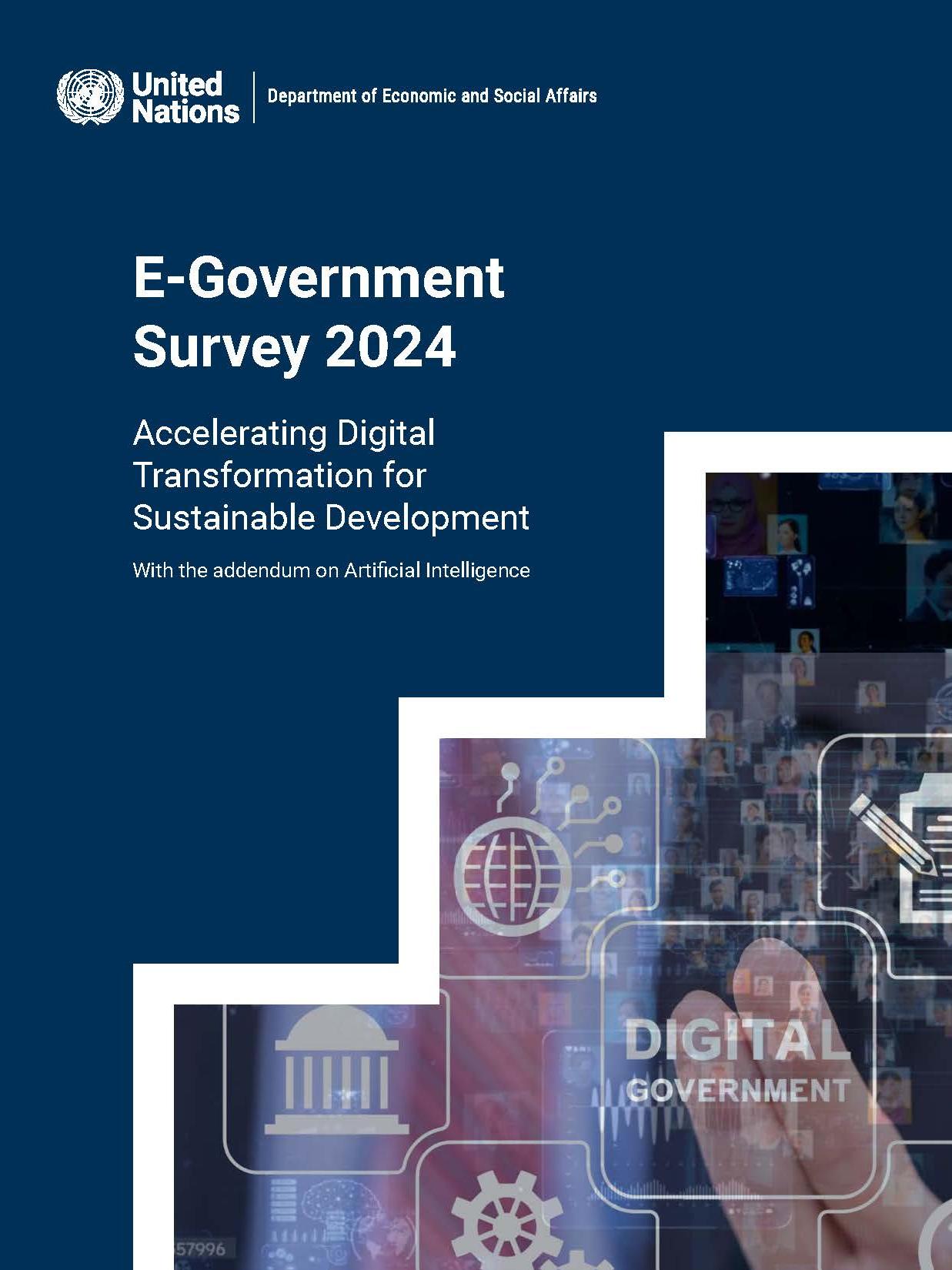
This thirteenth edition of the United Nations E-Government Survey, released in 2024, provides a comprehensive assessment of the digital government landscape across all 193 Member States. The 2024 Survey highlights a significant upward trend in the development of digital government worldwide, with increased investment in resilient infrastructure and cutting-edge technologies. The global average value of the E-Government Development Index (EGDI) shows substantial improvement, with the proportion of the population lagging in digital government development decreasing from 45.0 per cent in 2022 to 22.4 per cent in 2024. This progress underscores the continuing positive trend of digital transformation and its potential impact on achieving the Sustainable Development Goals.
Despite significant progress in digital government development, the EGDI averages for the African region, least developed countries, and small island developing States remain below the global average, underscoring the need for targeted efforts to bridge existing gaps.
At the local level, the Survey continues to assess city portals using the Local Online Services Index (LOSI). The LOSI findings reflect steady progress but also highlight persistent disparities between national and local e-government performance, pointing to the need for focused initiatives to strengthen digital government at the municipal level.
This edition introduces the new Digital Government Model Framework, providing countries with a comprehensive road map for the effective planning, implementation and assessment of digital government initiatives.
A short addendum explores the integration of AI in digital government development, emphasizing the importance of maximizing benefits and minimizing risks to achieve balanced governance
Report
Additional Files
Chapter 1 : A Digital Government Model Framework for Sustainable Development
Chapter 2 : Global Trends in E-Government
Chapter 3 : Regional E-Government Development and the Performance of Country Groupings
Chapter 4 : Local E-Government Development
Addendum on Artificial Intelligence and Digital Government
UN E-Government Survey 2024 (Print Version)
 Добро пожаловать в ООН!
Добро пожаловать в ООН!